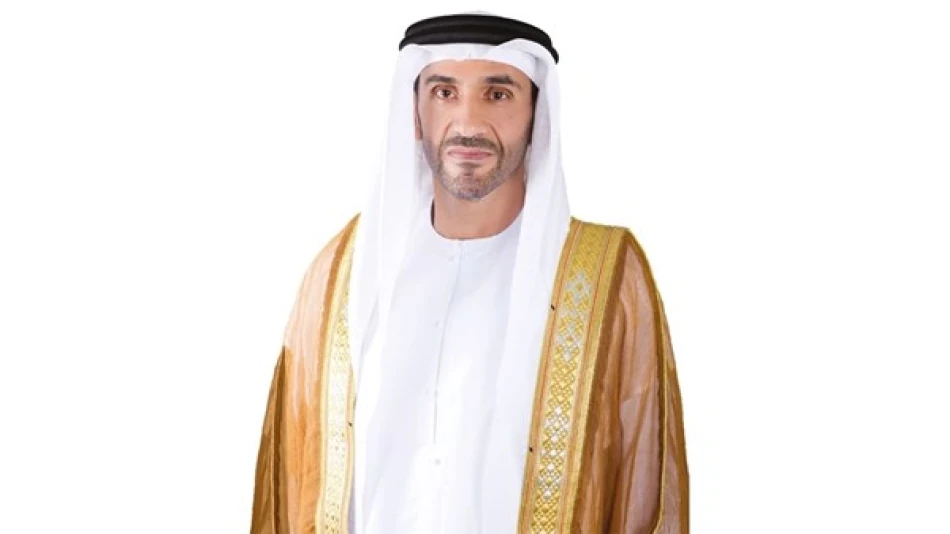
Emirati Women Shine: Inspiring Leadership and Achievements Celebrated by Nahyan bin Zayed
UAE Women's Achievements Reflect Decades of Strategic Investment in Gender Equality
The UAE's celebration of Emirati Women's Day highlights a remarkable transformation that began with the nation's founding vision and has evolved into one of the Gulf region's most successful models of women's empowerment. Sheikh Nahyan bin Zayed Al Nahyan's recent remarks underscore how strategic leadership support has positioned Emirati women as key drivers of economic diversification and social development, offering lessons for other nations pursuing similar goals.
From Vision to Reality: The Zayed Foundation
Sheikh Nahyan bin Zayed Al Nahyan, Chairman of the Board of Trustees of the Zayed bin Sultan Al Nahyan Foundation for Charitable and Humanitarian Works, emphasized that the exceptional achievements of Emirati women stem directly from sustained leadership commitment. Under President Sheikh Mohamed bin Zayed Al Nahyan's guidance, the UAE has systematically removed barriers that traditionally limited women's participation in key sectors.
This approach contrasts sharply with regional patterns where women's advancement often faces institutional resistance. The UAE's model demonstrates how top-down support, when consistently applied, can accelerate social change within traditional frameworks.
Economic Impact Beyond Symbolism
Measurable Contributions Across Sectors
The emphasis on women's roles in scientific, economic, humanitarian, and sports fields reflects the UAE's broader economic strategy. As the nation diversifies away from oil dependency, women's participation becomes crucial for sectors like technology, finance, and renewable energy—areas where talent scarcity could otherwise limit growth.
Unlike purely ceremonial recognition common elsewhere in the region, the UAE's approach focuses on sustainable development partnership, positioning women as essential contributors rather than beneficiaries of social programs.
The Sheikha Fatima Model
Sheikh Nahyan highlighted Sheikha Fatima bint Mubarak's pivotal role through her leadership of the General Women's Union and the Supreme Committee for Motherhood and Childhood. This institutional framework creates accountability mechanisms that ensure women's advancement remains a policy priority across government transitions—a critical factor often missing in other countries' gender equality initiatives.
Historical Context and Strategic Continuity
The reference to founding father Sheikh Zayed bin Sultan Al Nahyan's educational investments reveals the long-term nature of this transformation. By prioritizing women's education from the nation's early years, the UAE created human capital that now supports its knowledge economy ambitions.
This multi-generational approach differs significantly from countries that attempt rapid social change without foundational investments. The UAE's experience suggests that sustainable women's empowerment requires decades of consistent policy support, educational access, and cultural adaptation.
Regional and Global Implications
The UAE's success in balancing traditional values with women's advancement offers a template for other Gulf states pursuing economic diversification. As Saudi Arabia implements Vision 2030 and other neighbors seek to reduce oil dependency, the Emirati model provides practical insights into managing social transformation alongside economic reform.
For international investors and multinational corporations, the UAE's approach signals a mature understanding of human capital development. This creates competitive advantages in attracting global talent and positioning the country as a regional hub for knowledge-intensive industries.
Looking Forward: Sustainability Challenges
While celebrating current achievements, the UAE faces the challenge of maintaining momentum as regional competition intensifies. Other Gulf states are rapidly expanding women's opportunities, potentially reducing the UAE's comparative advantage in this area.
The true test of this model will be whether Emirati women can drive innovation in emerging sectors like artificial intelligence, space technology, and climate solutions—areas that will define the next phase of the nation's development strategy.
Most Viewed News

 Layla Al Mansoori
Layla Al Mansoori






